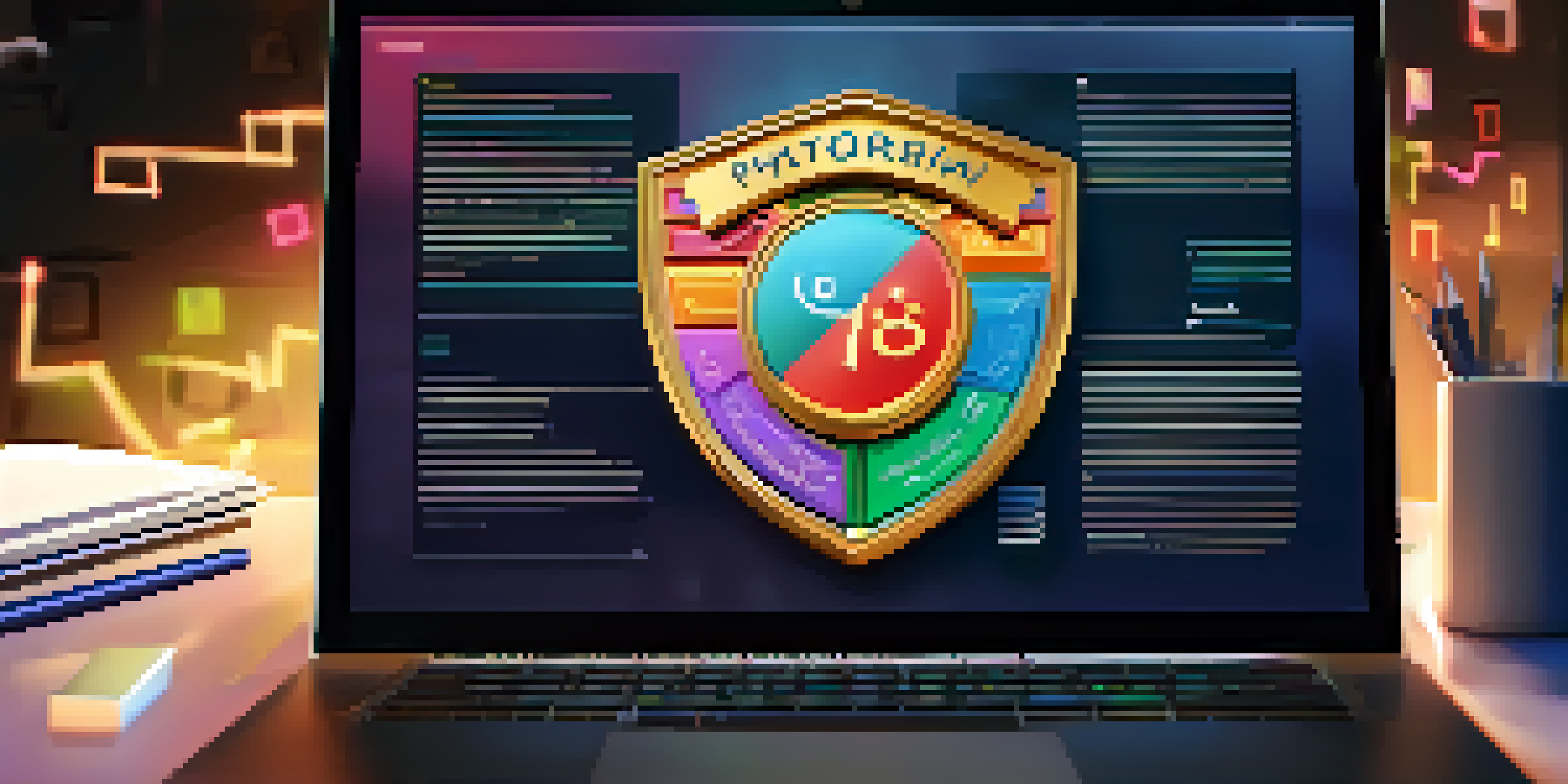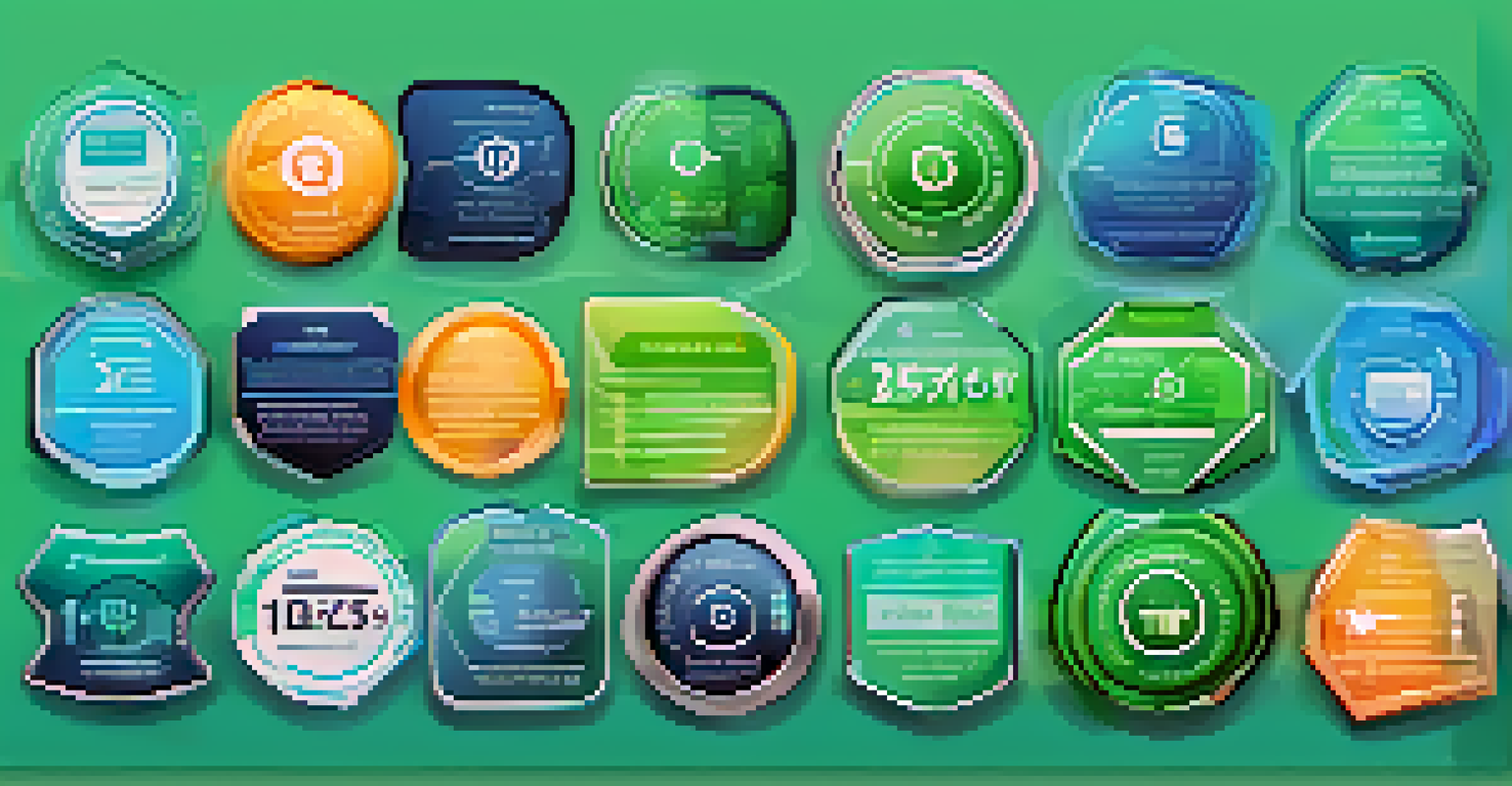Recognizing Informal Learning: The Power of Badges

Understanding Informal Learning and Its Importance
Informal learning refers to the knowledge and skills acquired outside of structured educational settings, like schools or universities. This includes learning through experiences, hobbies, and social interactions. Recognizing informal learning is crucial because it reflects real-world skills that often go unnoticed in traditional assessments.
The beautiful thing about learning is that no one can take it away from you.
In today’s fast-paced world, many individuals engage in informal learning without even realizing it. For example, someone might learn coding through online tutorials or acquire leadership skills by organizing community events. These experiences are invaluable and can enhance one’s career prospects, yet they often lack formal recognition.
By acknowledging informal learning, we can empower learners to see their value and motivate them to continue seeking knowledge. This recognition can foster a culture of lifelong learning, where individuals feel encouraged to explore and grow, regardless of their formal education.
The Role of Badges in Recognizing Learning Achievements
Badges serve as visual representations of achievements and skills acquired through informal learning. They can be awarded for completing certain tasks, mastering new skills, or participating in community activities. This gamification of learning not only makes the process more engaging but also provides tangible proof of one's accomplishments.

For instance, a digital badge might be awarded for completing a series of online workshops on digital marketing. This badge can then be displayed on a resume or social media profile, showcasing the individual's commitment to continuous learning. It’s a modern way to validate skills that might not be captured in traditional educational credentials.
Informal Learning's Real-World Value
Informal learning reflects practical skills gained outside traditional education, enhancing career prospects.
Moreover, badges can help create a sense of community among learners, as they often share their achievements with peers. This can lead to a supportive environment where individuals celebrate each other's successes, further motivating them to pursue new learning opportunities.
How Badges Foster Motivation and Engagement
One of the most significant benefits of using badges in informal learning is their ability to motivate learners. When individuals receive badges for their efforts, it boosts their confidence and encourages them to take on new challenges. This sense of accomplishment can be a powerful driver for continued engagement in learning activities.
Learning is a treasure that will follow its owner everywhere.
Think of badges like trophies for achievements. Just like athletes feel proud displaying their medals, learners can proudly showcase their badges, reinforcing their dedication and skills. This visibility can also inspire others to embark on their learning journeys, creating a ripple effect of motivation.
Additionally, badges can be used to create personalized learning paths. By setting specific goals tied to badge completion, learners can focus on areas that interest them the most, making the learning experience more relevant and enjoyable.
Examples of Badge Systems in Action
Many organizations and educational institutions have successfully implemented badge systems to recognize informal learning. For example, platforms like Credly and Badgr allow users to earn and display badges for various skills and achievements. These platforms make it easy for learners to showcase their qualifications to potential employers.
Another great example is Mozilla's Open Badges initiative, which promotes a standard for issuing and displaying badges across the web. This initiative has helped create a broader ecosystem where badges can be recognized and valued by various stakeholders, including educators and employers.
Badges Recognize Learning Achievements
Badges serve as visual proof of informal learning achievements, making skills more visible and recognized.
In addition, companies like IBM and Google have also embraced badge systems to acknowledge employee learning and development. By doing so, they not only enhance employee satisfaction but also foster a culture of continuous improvement within their organizations.
Challenges in Implementing Badge Systems
While badge systems offer many advantages, there are challenges to consider when implementing them. One major concern is ensuring the credibility of the badges awarded. Without a rigorous assessment process, badges may lose their value and fail to accurately represent a learner's skills.
Moreover, there can be a lack of awareness or understanding of badge systems among both learners and employers. If potential employers don’t recognize or value badges, the motivation to earn them may diminish. Therefore, it’s essential to establish clear communication about the purpose and benefits of badges.
Additionally, integrating badges into existing educational frameworks can be complex. Institutions may need to invest time and resources to create standardized criteria for issuing badges, which can be a daunting task. However, with careful planning, these challenges can be overcome.
The Future of Badges in Education and Beyond
As we look to the future, the role of badges in education and professional development is likely to expand. With the rise of online learning and the gig economy, recognizing informal learning through badges can become a standard practice. This shift could lead to a more inclusive approach to education, where diverse learning pathways are acknowledged and valued.
Furthermore, advancements in technology may make it even easier to create, share, and verify badges. Blockchain technology, for instance, could provide a secure way to store and validate badge credentials, ensuring their authenticity and making them more appealing to employers.
Motivation Through Badge Systems
Badges boost learner motivation by celebrating accomplishments and encouraging ongoing engagement in learning.
Ultimately, badges have the potential to revolutionize how we view learning and achievement. By embracing this innovative approach, we can create a more equitable educational landscape that recognizes the diverse experiences and skills individuals bring to the table.
Conclusion: Embracing the Power of Badges
In conclusion, recognizing informal learning through badges is a powerful way to validate skills and motivate learners. Badges not only celebrate achievements but also foster a culture of continuous learning and improvement. By embracing this innovative approach, we can empower individuals to take charge of their education and career paths.
As we move forward, it’s crucial for educators, employers, and learners to collaborate in creating systems that recognize and value informal learning. By doing so, we can ensure that everyone’s efforts are acknowledged and appreciated.

So, whether you’re a learner seeking to showcase your skills or an educator looking to inspire your students, consider the potential of badges as a tool for recognition and motivation. The future of learning is here, and it’s time to embrace it!